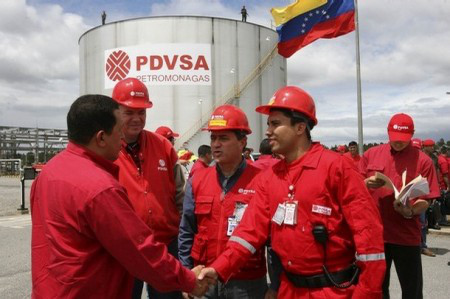by Elisabeth Nguebana, Kelsey Zimmerman, Patrick Osborne, Alberto Perego, Alexander Geysman
Paris Agreement Enters into Force
The Paris Agreement, which was negotiated at COP 21 last year, entered into force on November 4, as more than 100 countries, responsible for over 73% of global emissions, ratified it. The decisive act was put forward by the EU last month. Each of the ratifying countries has to submit the INDC – Intended Nationally Determined Contribution, where it sets out its own path toward de-carbonization.
UNFCCC. Paris Agreement – Status of Ratification. http://unfccc.int/paris_agreement/items/9444.php
UNFCCC. INDCs as communicated by Parties. http://www4.unfccc.int/Submissions/INDC/Submission%20Pages/submissions.aspx
The Colonial Pipeline Explosion
On Tuesday, November 1, the governor of Alabama declared a state of emergency following the explosion of the Colonial Pipeline a day earlier. The explosion shut down a major gasoline and diesel corridor that moves fuel from Texas to New-York. The pipeline serves more than 50 million people. North Carolina alone gets 70% of its gasoline through this system. There have been some previous troubles with the pipeline. In September, there was a leak of 1.2 million litres of gasoline not far from the place of the explosion. Gasoline prices jumped immediately in many American states and my remain high during the repairs to the pipeline.
James Conca. United-States, The Colonial Pipeline Explosion: Do We Need Fewer Pipelines-Or More? November 3, 2016. http://www.forbes.com/sites/jamesconca/2016/11/03/the-colonial-pipeline-explosion-do-we-need-fewer-pipelines-or-more/#23be81d64cdf
No Rush Back to Iran
Iranian companies are finalizing work on section 19 of the South Pars field (estimated by the IEA to hold 51 trillion cubic meters of gas), and they need the Western technology. France’s Total, Norway’s Statoil, Anglo-Dutch group Royal Dutch Shell and Spain’s Repsol stepped out of works on this gas field after the sanctions regime was tightened, and the contract terms proved to be unfavorable. Section 19 has been developed by two Iranian companies: Petropars and the Iranian Offshore Engineering and Construction Company. Western countries are still willing to invest in Iran, but there is no rush, apparently. Political risks and uncertainties in Iran make it hard to justify investment at a time of weak oil prices.
Monavar Khalaj Assaluyeh, Anrew Ward. Western oil groups in no rush to return to Iran. Financial Times, https://www.ft.com/content/06acb822-95fe-11e6-a80e-bcd69f323a8b
The Continuous, Precipitous Downfall of Venezuelan Oil Production Worsens
Recent exports of Venezuelan crude oil to the United States plummeted 23% in October, a signal of the larger economic woes plaguing the country. Oil accounts for about 95% of Venezuela’s export revenue but oil exports have fallen sharply over the past several months due to a combination of factors such as underinvestment by both foreign investors and the Venezuelan government, payment delays to suppliers, and insufficient diluents to make exportable crude oil blends.
Venezuelan crude production shrank 11% to 2.3 million barrels a day from September 2015 to September 2016. The number of working oil rigs in Venezuela also declined by 25% in the same period. Therefore, the country’s oil output is falling faster than any other major oil producer except insurgency-riven Nigeria. The combination of a decline in oil output and depressed crude oil prices make it increasingly unlikely for Venezuela’s economy, projected to contract another 10% this year, to recover anytime soon.
Anatoly Kurmanaev. Venezuelan oil is largely staying in the ground or going up in smoke. Wall Street Journal. October 23, 2016. http://www.wsj.com/articles/venezuelan-oil-is-largely-staying-in-ground-or-going-up-in-smoke-1477238401
Erwin Cifuentes. Venezuelan crude exports to U.S. nosedive by 23%. Oilprice.com. November 3, 2016. http://oilprice.com/Latest-Energy-News/World-News/Venezuelan-Crude-Exports-To-US-Nosedive-By-23-Percent.html
Venezuela’s PDVSA Tries to Hold On
Venezuela state oil company, PDVSA, announced that is concluding a financing deal with a local firm, Delta Financing, and the Indian ONGC. The company is raising nearly $1.45 billion USD to improve production. Venezuelan company Delta Petroleum will provide $1.13 billion USD in financing to boost the joint venture’s output, while ONGC will provide an additional $318 million to finance increased crude production at the San Cristobal field. Both companies have 40 percent stakes in joint ventures with PDVSA. 40% is not an arbitrary number. Since 2006 when former president Chavez implemented the nationalization of oil exploration and production in Venezuela, joint ventures with PDVSA became mandatory for foreign investing companies, and a minimum of 60% of shares with PDVSA in all the projects was implemented. Sixteen firms, including Chevron, ExxonMobil, and Royal Dutch Shell, complied with new agreements, and Total and Eni were forcibly taken over.
Writing by Brian Ellsworth. Venezuela’s PDVSA reaches $1.45 billion in finance deals with oil firms. Reuters. November 4, 2016. http://www.reuters.com/article/us-venezuela-pdvsa-idUSKBN12Z291
Russia’s privatization efforts fall foul of state meddling
Russia’s government is expected to set in motion the sale of a 19.5% stake in Rosneft, the world’s largest quoted crude oil producer. The move comes shortly after Rosneft bought another state-controlled oil group, Bashneft, Russia’s sixth-biggest producer. Bashneft sold for $5.2bn and the Rosneft stake is expected to raise $11 billion USD. The two transactions are seen as Russia’s biggest privatization efforts in a decade. This effort is supposed to shift ownership from public to private and thereby improve management, open new avenues for obtaining technology and financing, and stimulate competition. The idea of potentially selling one state-owned company to a bigger one, then potentially letting the buyer buy the government’s stake in itself does little to achieve those goals. Russia’s anti-monopoly watchdog has calculated that the share of state-controlled companies doubled to 70 percent of economic output by 2015, from 35 percent in 2005. This may only highlight the extent to which principles of competition and private ownership are now in retreat.
Neil Buckley. Russia’s privatization efforts fall foul of state meddling. Financial Times. November 2, 2016. https://www.ft.com/content/7c3cc874-a03b-11e6-86d5-4e36b35c3550
LNG Carrier Attack Attempt
A dangerous incident occurred not far from the coast of Yemen on October 25. Teekay’s LNG carrier Galicia Spirit was attacked by gunfire from a skiff, which then exploded before approaching close enough to damage to the tanker. Later investigation revealed that large amounts of explosives were found on the skiff. This attack creates questions regarding the business of LNG trade worldwide, showing its insecurity in the face of terrorist attacks and piracy. The rise of the LNG trade and relative lack of security of transportation make the carriers an attractive target for more attacks. Will the shipping companies make moves towards stronger securitization or not – we’ll see.
Johnathan Saul. Boat that attacked gas tanker off Yemen carried explosives – ship owner. Reuters. November 4, 2016 http://in.reuters.com/article/yemen-shipping-attack-idINKBN12Y2LJ

